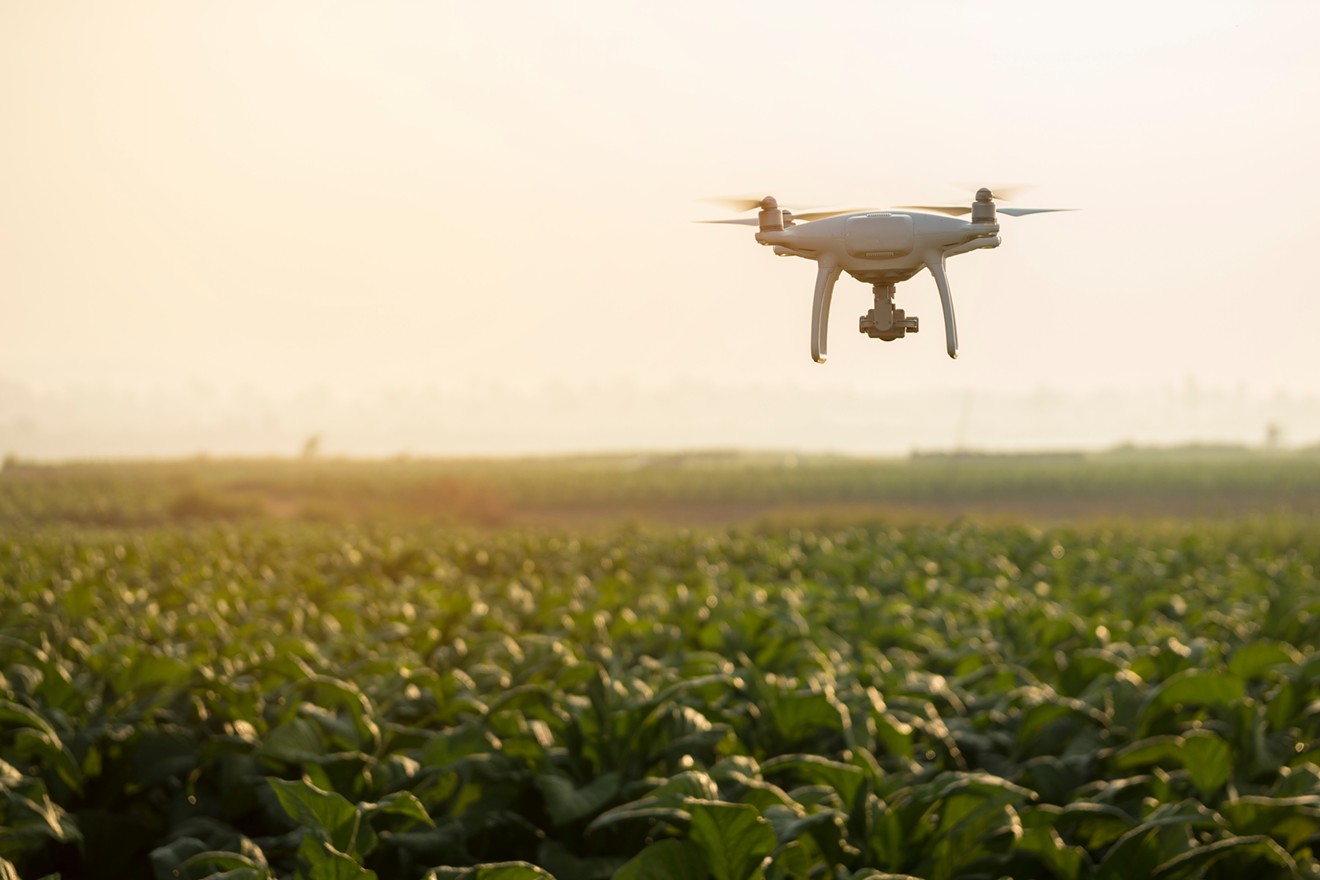A group of photojournalists is challenging a Texas state law that restricts how they can use drones, arguing the law represents a violation of the First Amendment.
The law imposes fines and possible jail time for photographers caught using drones to shoot photos of people or private property, regardless of where the drone is located. The group argues the law creates a chilling effect, placing unconstitutional restrictions on newsgathering and free speech.
The law, passed in 2013, bans the use of unmanned aircraft for "surveillance" of individuals and private property. It also bans the use of drones at altitudes less than 400 feet above ground level above sports stadiums, prisons, jails and "critical infrastructure facilities" like oil refineries, electrical power plants and ports, whether or not the drones are being used for photography. The Federal Aviation Agency bans drones from flying above 400 feet in all cases.
The law includes a long list of exemptions, including for scholarly research, inspecting oil and gas pipelines, and fire suppression. But that list of exemptions doesn't include newsgathering. Penalties for breaking the law can include fines up to $2,000 and 180 days in jail per image.
Attorneys with the legal group Public Justice filed the lawsuit Thursday in federal court in Austin on behalf of the National Press Photographers Association and the Texas Press Association. The group is seeking to have the law overturned.
Joe Pappalardo, a drone pilot and former editor of the Dallas Observer, is also among the plaintiffs in the case.
The suit argues that the creation of a no-fly zone above buildings such as sports stadiums and prisons "inevitably single(s) out journalists for disfavored treatment" because it prohibits news photography above areas of public interest while generally making exceptions for photography for commercial and government purposes. Such a restriction violates the press freedom guaranteed by the First Amendment, the suit argues.
The suit also argues that the law is in violation of the 14th Amendment, which holds, in part, that the state may not create laws that deprive a person of life, liberty or property without due process of law. That prohibition includes laws that are so vague that a normal person would be unable to understand what behavior the law restricts, or those vague enough to invite arbitrary enforcement.
The group argues that, because it doesn't define the term "surveillance," the law is unconstitutionally vague because it doesn't allow the public to understand when their conduct is prohibited or give law enforcement enough information to make arrests.
Brandon Wade, a freelance news photographer working in the Dallas-Fort Worth area, said the law has caused problems for him during assignments. Last year, the Fort Worth Star-Telegram offered Wade an assignment to shoot photos of the construction of Globe Life Field in Arlington. The law allows photographers to shoot photos of private property with the landowner's permission, so Wade requested permission from the Texas Rangers. When they refused to grant him permission, he lost an assignment worth thousands of dollars, he said.
Wade said he thinks the restrictions the law places on drone photography are unreasonable. There's no law to prevent a news photographer from standing on a public sidewalk and taking photos of a private building. Nor are there any similar restrictions for TV news helicopters, which have been in the air for years.
"I really don't see what the difference is," he said.
Since drones became common for private use, the FAA has done a good job of regulating when and where they can be used, Wade said. When other government agencies try to impose regulations on top of the ones the FAA already has in place, it's bad for the economy and bad for freedom of speech, he said.
Although Wade still tries to use his drone to take photos in compliance with the new law, it's a major hindrance, he said.
"It really limits your ability to tell a story in a different way," he said.
[
{
"name": "Air - MediumRectangle - Inline Content - Mobile Display Size",
"component": "18855504",
"insertPoint": "2",
"requiredCountToDisplay": "2"
},{
"name": "Editor Picks",
"component": "17105533",
"insertPoint": "4",
"requiredCountToDisplay": "1"
},{
"name": "Inline Links",
"component": "18349797",
"insertPoint": "8th",
"startingPoint": 8,
"requiredCountToDisplay": "7",
"maxInsertions": 25
},{
"name": "Air - MediumRectangle - Combo - Inline Content",
"component": "17105532",
"insertPoint": "8th",
"startingPoint": 8,
"requiredCountToDisplay": "7",
"maxInsertions": 25
},{
"name": "Inline Links",
"component": "18349797",
"insertPoint": "8th",
"startingPoint": 12,
"requiredCountToDisplay": "11",
"maxInsertions": 25
},{
"name": "Air - Leaderboard Tower - Combo - Inline Content",
"component": "17105535",
"insertPoint": "8th",
"startingPoint": 12,
"requiredCountToDisplay": "11",
"maxInsertions": 25
}
]












